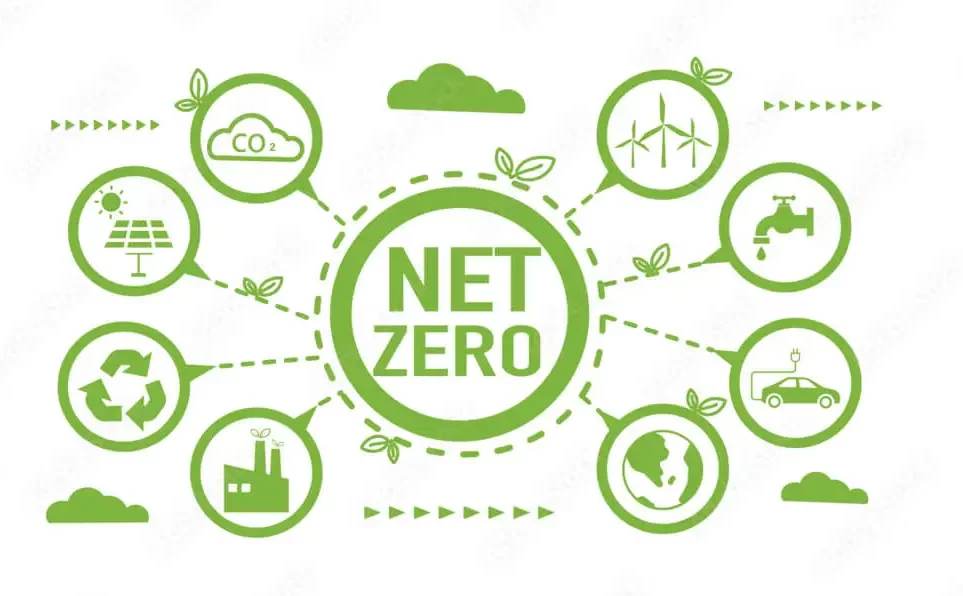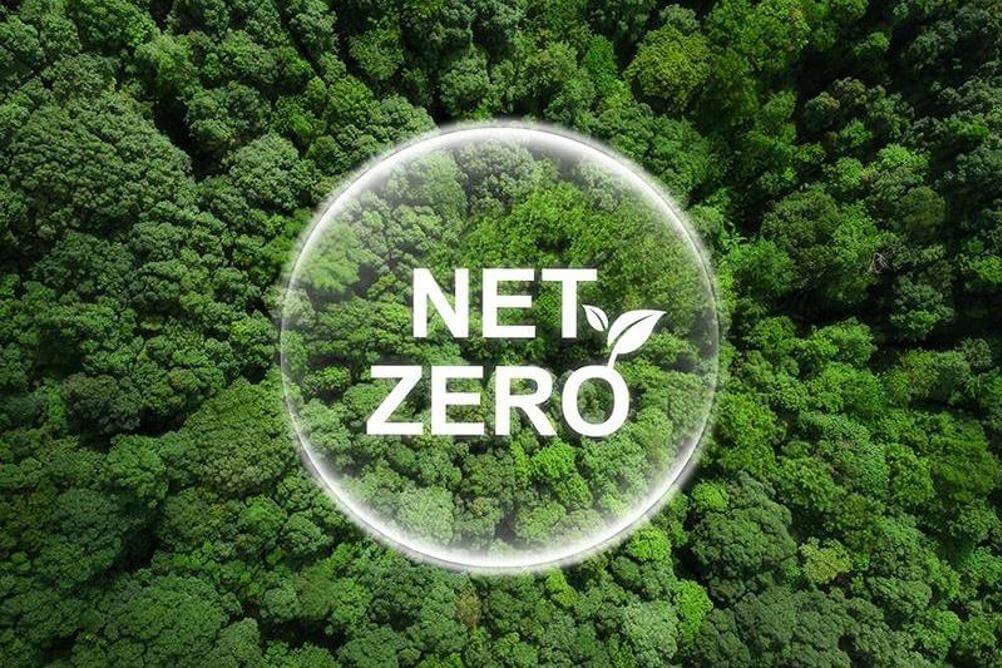Net Zero Programs over the World

Sustainability isn’t just a corporate buzzword—it’s the new compass guiding nations, corporations, and individuals towards a more responsible tomorrow. Nowhere is this green wave more evident than in the surge of Net Zero Programs around the world. From the verdant landscapes of Costa Rica to the bustling metropolises of the United States, sustainability initiatives have become a geopolitical imperative and a central commitment within the corporate boardroom. This comprehensive overview is a beacon for businesses, environmentalists, and policymakers alike, helping them understand the international landscape of Net Zero Programs and the opportunities they present for the green transformation of our society.
Net Zero Programs in Latin America
In Latin America, several countries have spearheaded innovative Net Zero Programs, setting an example for the entire region. These initiatives, rooted in the biodiversity and natural capital of the continent, harmonize environmental conservation with sustainable policy measures.
Programa Nacional Carbono Neutralidad in Colombia
Colombia’s National Program for Carbon Neutrality is an audacious bid to combat climate change. By focusing on energy efficiency, renewable energy promotion, and reforestation, Colombia is striving to be carbon neutral by 2050. The program also champions social inclusion, ensuring that sustainable practices support the country’s vulnerable communities. This multifaceted approach is a model of integrating climate action with societal well-being.
Programa Ecuador Carbono Cero
Ecuador’s Carbon Zero Program (PECC) is a testament to the nation’s commitment to the Paris Agreement and climate-resilient development. The program aims to reduce greenhouse gas emissions, strengthen sustainable production processes, and increase the country’s carbon sinks. By supporting public and private stakeholders, PECC paves the way for a circular economy that balances economic growth with environmental stewardship.
Programa País Carbono Neutral in Costa Rica
Costa Rica, often celebrated as a sustainability pioneer, launched the Carbon Neutral Country Program (PNCN) to solidify its reputation. PNCN has achieved international recognition by aiming to transform the country’s productive sectors, enhance institutional capabilities, and promote a culture of sustainability. With a strong focus on reducing emissions from transportation, agriculture, and waste, Costa Rica’s program is a benchmark for comprehensive national sustainability action plans.
Net Zero Programs in the US
Despite shifting political tides, various states and organizations in the US remain steadfast in their commitment to net zero. One notable example is California’s landmark climate law, the California Global Warming Solutions Act (AB 32). This pioneering legislation has set the stage for ambitious goals and policies.
The California Example
AB 32 directs the state’s Air Resources Board to develop regulations to cap greenhouse gas emissions and implement measures to reduce them over time. The regulation harnesses the power of the market, putting a price on carbon emissions through a cap-and-trade system that incentivizes polluters to reduce their emissions.
The Role of Corporate America
Beyond legislative efforts, many US companies have embarked on their own pathways to net zero. Initiatives include investing in renewable energy, sustainable supply chains, and carbon capture technologies. These proactive measures position US firms as leaders in the transition to a low-carbon economy.
Net Zero Programs in the EU
The European Union has long been at the forefront of environmental policies, and its Net Zero Programs are no exception. The EU’s Green Deal is an ambitious plan to make the EU’s economy sustainable by turning climate and environmental challenges into opportunities.
The Carbon Border Adjustment Mechanism (CBAM)
The EU’s introduction of CBAM is a milestone in the global effort to protect the environment and ensure a level playing field for European businesses. By placing a carbon price on imports of certain goods from outside the EU, CBAM promotes the production of more sustainable products worldwide.
The EU Emissions Trading System (ETS)
Established in 2005, the EU ETS is the world’s first and largest carbon market, limiting emissions from around 45% of the EU’s carbon footprint. The program continues to evolve, incorporating more sectors and reinforcing the EU’s commitment to climate action.
Net Zero Programs in Asia
The Asian continent is home to a diverse range of economies, each with its own approach to sustainability. With rapid urbanization and economic growth, many Asian countries are recognizing the importance of reducing their carbon footprint.
China’s ETS and Renewable Energy Efforts
China, the world’s largest emitter of greenhouse gases, is taking significant steps to mitigate climate change. The introduction of its national Emissions Trading System, along with substantial investments in renewable energy, signifies a transition towards greener economic practices.
India’s Renewable Energy Transition
India, with its ambitious renewable energy targets, is striving to emerge as a global leader in the transition to clean energy. The country’s National Action Plan on Climate Change provides a framework for promoting solar and wind power, energy efficiency, and sustainable urban development.
The Role of Southeast Asian Nations
The nations of Southeast Asia are also making strides in adopting Net Zero Programs. Indonesia, for example, is committed to reducing its emissions through its National Determined Contributions (NDCs), which focus on preserving its forests and shifting to renewable energy sources.
How Leaf can help
Leaf is a software product that offers real-time carbon footprint evaluation for your portfolio, providing maximum transparency and expert guidance. Transform your investments with Leaf’s professional support, measuring value not just in currency but in responsible carbon impact. Balance your financial books while securing a sustainable future for all, together with Leaf.
Conclusion
The commendable efforts detailed above are a testament to the global commitment to Net Zero Programs. Through these programs, the international community is crafting a sustainable future that balances the need for economic growth with environmental conservation and social equity. While challenges remain, the success stories emerging from these initiatives serve as beacons of hope and a blueprint for the monumental task ahead of achieving a net-zero carbon world. By learning from each other’s triumphs and setbacks, we can align our compasses, collectively steering towards a more sustainable and equitable future for all.
Ecuador's Zero Carbon Programme is a testament to the country's commitment to sustainability, setting a global example. This guide highlights the program's strategies, benefits, and how businesses can align with these green initiatives.
Colombia's Carbon Neutral National Program is a beacon for sustainable transformation, blending ambitious goals with actionable strategies. This guide delves into its impact on businesses and society, showcasing the path to a greener future.
Unlock Net Zero strategies in finance to combat climate change. This guide for finance pros offers a roadmap to sustainability, benefits, and innovation.
The Future of Finance: Banks' Strategic Path to Net Zero Compliance. Discover how banks can lead the charge towards a sustainable future by aligning with the Net Zero Banking Alliance.
The pivotal role of Net Zero in transforming the finance sector towards sustainability. This comprehensive guide delves into actionable strategies, pioneering examples, and the future of banking with Net Zero goals.
Glasgow Financial Alliance for Net Zero (GFANZ): A groundbreaking initiative uniting the world's leading financial institutions in the quest for a sustainable future. Learn how GFANZ is steering the global finance sector towards net-zero emissions by 2050, aligning billions in assets with the goals of the Paris Agreement.
Join the transformative journey with the Net Zero Banking Alliance: A global initiative uniting banks in the fight against climate change. Discover how over $130 trillion in assets are being steered towards a sustainable future, fostering innovation, and driving the banking industry towards a net-zero carbon economy.







